


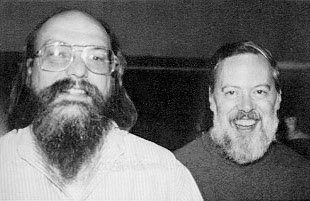
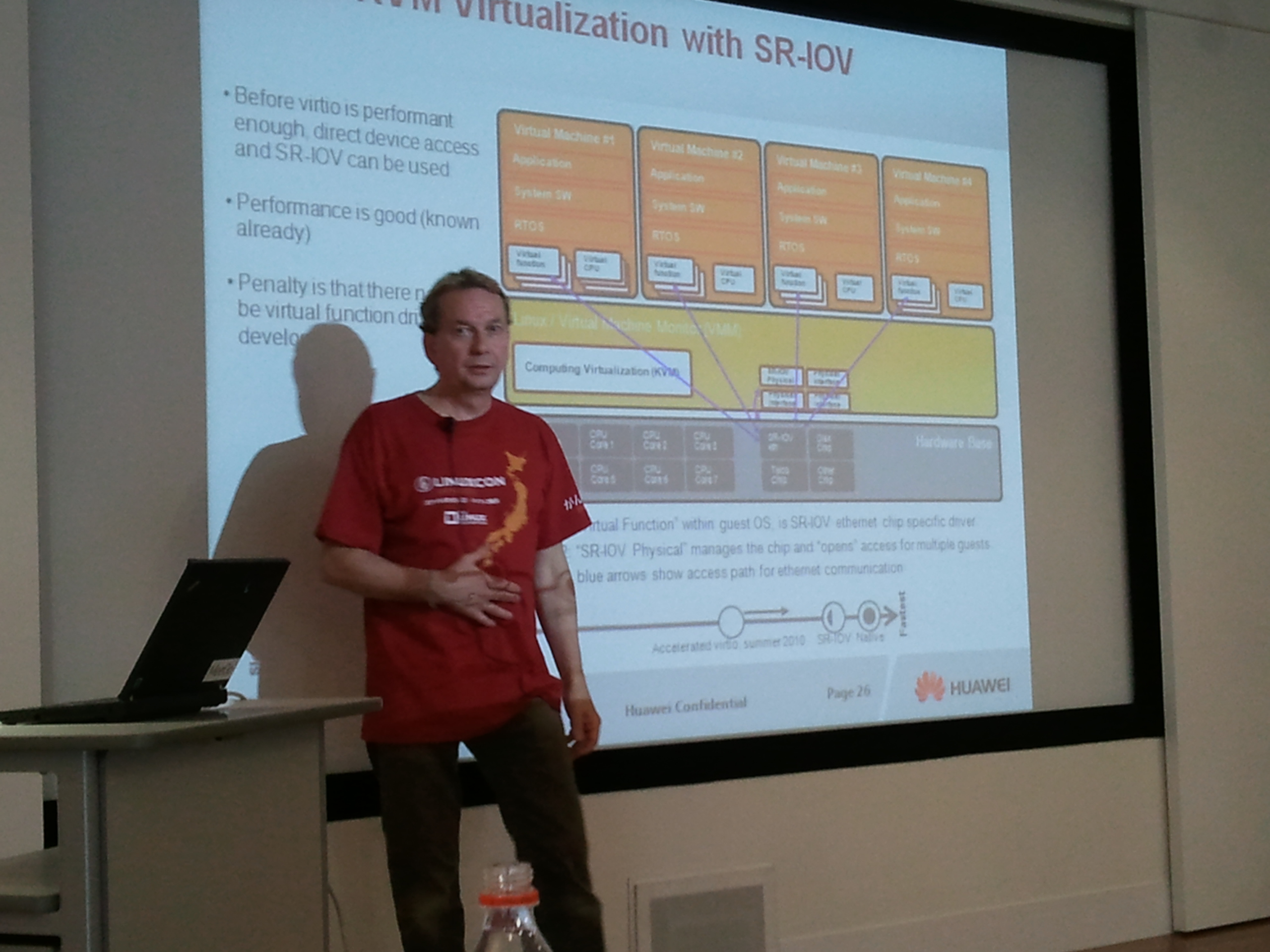





Actually, today we are going to talk about two things:
In the context of Robert Morris, and Ken Thompson.
| Application | http | user-level daemon |
| Presentation | ||
| Session | ||
| Transport | TCP | kernel (user process context) |
| Network | IP | kernel |
| Link | Ethernet (frames) | Hardware/firmware/device driver; uses software-maintained addresses |
| Physical | Ethernet (physical) | hardware |
A socket is the end-point for bidirectional communication flow across a network (or between processes, but we are interested in the network here). The identifier that makes a unique socket is:
For Internet services using TCP or UDP, your service name is your port number. Important services use well-known port numbers, assigned by the IANA.
// Server code in C
// adapted from http://en.wikipedia.org/wiki/Berkeley_sockets
#include <sys/types.h>
#include <sys/socket.h>
#include <netdb.h>
#include <netinet/in.h>
#include <arpa/inet.h>
#include <stdio.h>
#include <stdlib.h>
#include <strings.h>
#include <unistd.h>
int main()
{
struct addrinfo hint;
struct sockaddr_storage bindaddr_storage;
struct sockaddr_in6 *bindaddr6 =
(struct sockaddr_in6 *)&bindaddr_storage;
struct sockaddr_in *bindaddr =
(struct sockaddr_in *)&bindaddr_storage;
struct addrinfo *result;
struct sockaddr_storage peer;
int peersize;
char hbuf[NI_MAXHOST], sbuf[NI_MAXSERV];
int retval;
int i32SocketFD = socket(PF_INET6, SOCK_STREAM, 0);
char msg[] = "Success!\n";
if(-1 == i32SocketFD)
{
perror("can not create socket");
exit(-1);
}
bzero(&bindaddr_storage, sizeof(bindaddr_storage));
bindaddr6->sin6_family = AF_INET6;
bindaddr6->sin6_addr = in6addr_any; /* struct assignment */
bindaddr6->sin6_port = htons(12345);
if(-1 == bind(i32SocketFD,(struct sockaddr*) bindaddr6,
sizeof(struct addrinfo)))
{
printf("error bind failed");
perror("main");
exit(-1);
}
if(-1 == listen(i32SocketFD, 10))
{
printf("error listen failed");
exit(-1);
}
// Here, you should print out your local address using
// getsockname() and getnameinfo() (and gai_strerror on error)
for(; ;)
{
int i32ConnectFD = accept(i32SocketFD, NULL, NULL);
if(0 > i32ConnectFD)
{
// improve error reporting here, using perror()
printf("error accept failed");
exit(-1);
}
// Here, you should print out your local address
// and the peer address using
// getsockname(), getpeername(), and getnameinfo()
// (and gai_strerror on error)
// perform read write operations ...
// add error checking and reporting here
write(i32ConnectFD, msg, sizeof(msg));
// wait one minute; this lets us see the connection in place, and
// even see the behavior as we try to start a second connection
// at the same time
sleep(60);
// add error checking and reporting here
shutdown(i32ConnectFD, 2);
// add error checking and reporting here
close(i32ConnectFD);
}
// add error checking and reporting here
close(i32SocketFD);
return 0;
}
In Linux, as in most Unix systems, the L2 information (the ARP cache, in IPv4 over Ethernet terms, or the Neighbor Cache in IPv6 terms) is kept in the same data structure as the IP routing table. Linux uses a Radix Tree, also known as a Patricia trie.
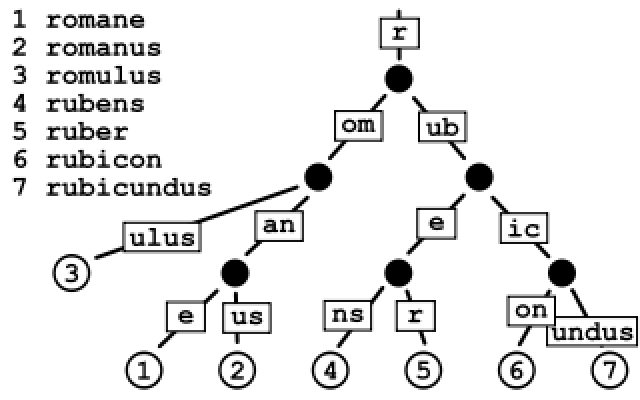
[rdv@localhost Desktop]$ route -v -A inet Kernel IP routing table Destination Gateway Genmask Flags Metric Ref Use Iface 133.27.56.0 * 255.255.248.0 U 0 0 0 ath1 default gw2-v20.sfc.kei 0.0.0.0 UG 0 0 0 ath1
[rdv@localhost Desktop]$ route -v -A inet6 Kernel IPv6 routing table Destination Next Hop Flags Metric Ref Use Iface 2001:200:1c0:2000::/64 * UA 256 104 0 ath1 fe80::/64 * U 256 0 0 ath1 */0 fe80::213:5fff:fecd:dc00 UGDA 1024 22 0 ath1 localhost6.localdomain6/128 * U 0 1 1 lo 2001:200:1c0:2000:219:7dff:fe0c:f94/128 * U 0 304 1 lo fe80::219:7dff:fe0c:f94/128 * U 0 4 1 lo ff02::1/128 ff02::1 UC 0 6 0 ath1 ff02::1:ff83:8338/128 ff02::1:ff83:8338 UC 0 5 0 ath1 ff00::/8 * U 256 0 0 ath1
A very common security bug is to allow the caller of a function to present an argument larger than the space allocated for it.
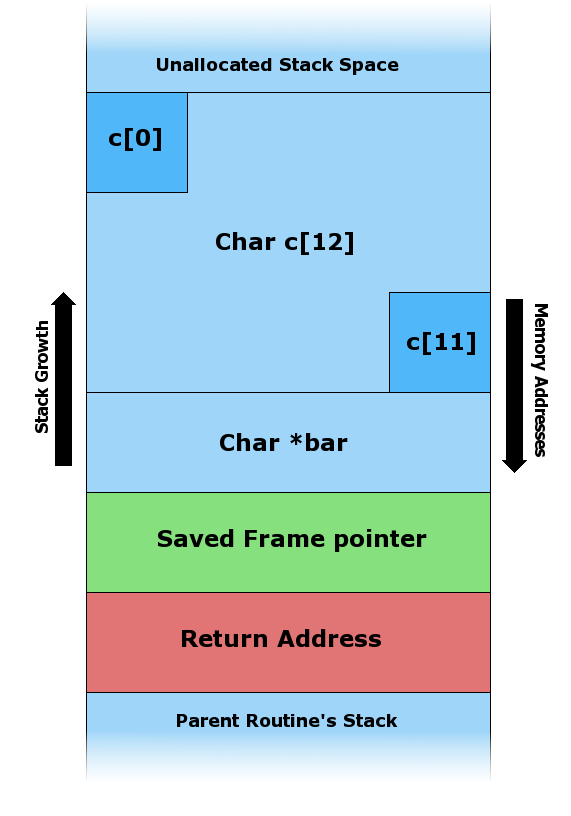 |
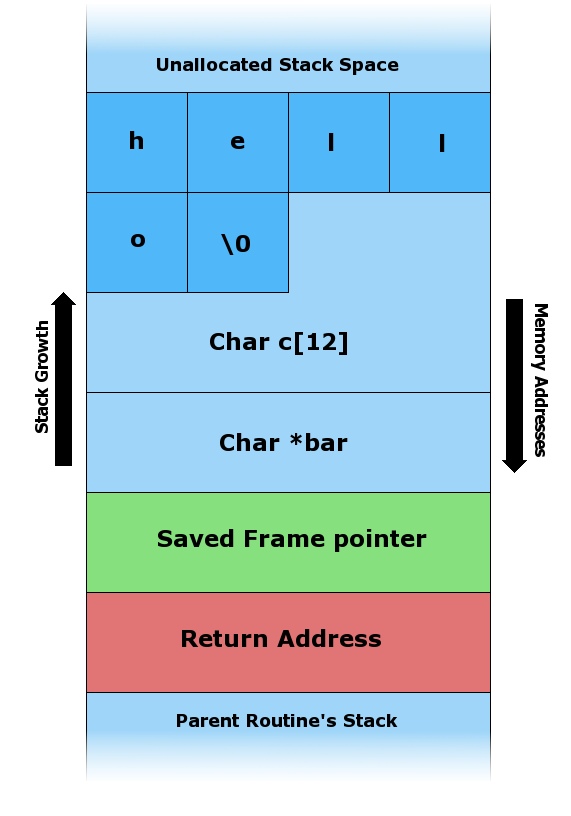 |
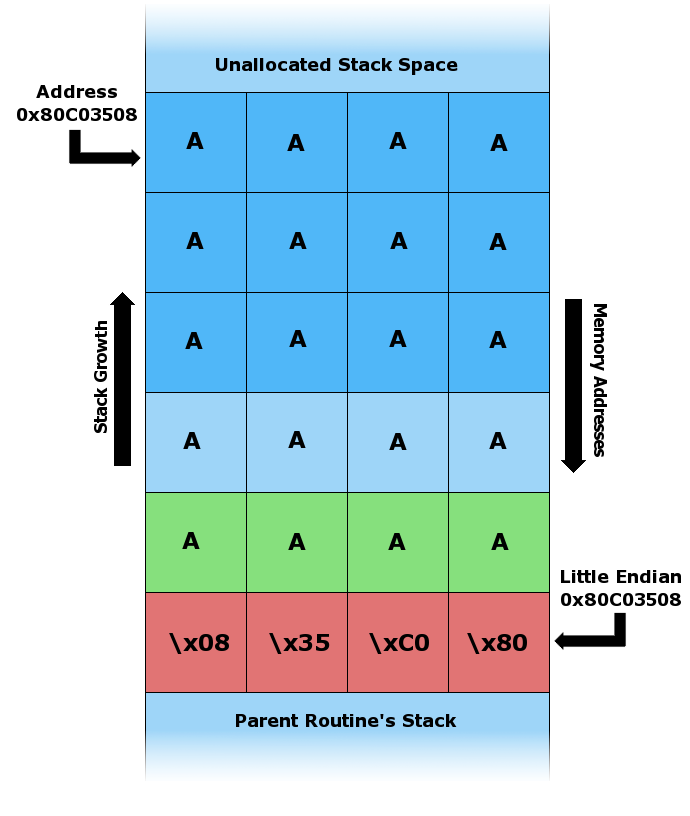 |